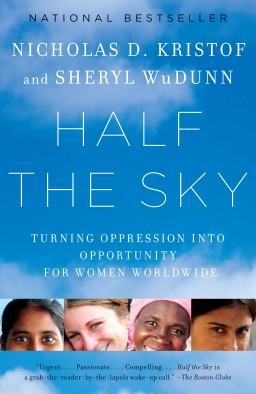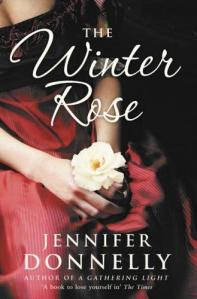Genre: Memoir
Series: No
Pages: 316
Copyright: 2008
Publisher: One World Books, Random House
Buy: Amazon Summary:
Tears of the Desert: A Memoir of Survival in Darfur
Summary:
Tears of the Desert: A Memoir of Survival in Darfur is a brave book of self exposure. Many would have been scared to share what Halima Bashir has shared in her memoir. The book follows Halima from her childhood in a Zaghawa tribe village in Darfur. Halima is a good student and she is sent off to school by her father who believes because she has one white eye lash she has good fortune and will do great things. Away from her village and in the town of Hashma, Halima studied working her way to the top to the school even though she was not Arabic and they were often favored by the teachers. The conflict between Arabs and African's starts about the time she is finishing school. Her father wanted her to become a doctor and after finishing and passing the exams she applies for college. She is accepted to medical school and travels to the capital city of Khartoum where she will study. She is now very far from her family and the conflict in the south is increasing but it has not affected her home. On the university campus she observes a lack of racial tension that she had felt other places but as the conflict spreads this dissipates. She finishes her studies and returns to her village to wait for placement within a hospital. She worries that the
janaweed who have raided and killed near by villages will come to hers but the fighting is still somewhat removed from her village. Halima is placed in Hashma and this is when her troubles start that lead to her fleeing the country.
Feelings:
This is a powerful book that should have helped many who were unsure of the damage of the conflict in Sudan to see the destruction of the lives of the people there. This book will make you smile, cry, and yearn to help those within its pages. Dr. Halima Bashir has escaped to a safer life in England but many in her country have not. Something that shocked me was that she does not know where her family is? Her mother and sister who ran to try and safe her from the government and her two brothers who joined the resistance. It is hard for me to imagine not knowing where my family was. I tried to do a few searches to see if maybe in the four years since it had been published she had been able to locate her family, I was unable to find any indication that she had. I found that I didn't want to stop reading the story even though it was heart breaking at times. It is detailed but not so much so that we are overwhelmed by the grotesque events that take place. There is a genuine dislike for the
janaweed as well as the government police and military who abuse the Africans just because of the color of their skin.
After having finished reading
Tearsof the Desert, I wondered what had happened in the country since then. There hasn't been as much media coverage recently. The president of Sudan
Omar Hassan Ahmad al-Bashir has been convicted of war crimes and genocide by the International Criminal Court, he is the only sitting leader of a country to be convicted on such acts by the court. There is an issue for his arrest but so far Sudan has refused to act upon it.
With the independence of
South Sudan in 2011 from
Sudan the conflict has changed. The Sundanese government is denying having bombed villages in South Sudan and South Sudan is considering stopping talks with the north over oil (for more on the conflict this is a good source
Sudan: Murder by Proxy. Much is not being covered by the media, this site lists events by day).
Today in Darfur region the conflict is not the Arab
janaweed fighting the African tribes, specifically the
Fur and Zaghawa ethnic groups. This new strategy uses the Tunjur, Bergid, and Berti tribes to fight the Fur and Zaghawa, making it an African fighting African conflict. The militia is still supported heavily by the government of Sudan (Sudan: Murder by Proxy). The government in "Khartoum has done all it can to ensure that there is no news reporting
from Darfur that it does not control, that there are no human rights
reporters, and that every humanitarian nongovernmental organization
understands full well that any reporting-even on basic humanitarian
conditions-will result in its expulsion and perhaps that of others" (allAfrica
South Sudan: Darfur Moves Yet Deeper Into the Shadow of Lies). Many international organizations and media sources clam that the Darfur crisis is winding down and is no longer an international issue. This is not the case and the fact that the Sudanese government is doing all it can to keep the media out, as well as the newly appointed expert for the UN human rights on a visit in June 2012 is evidence that the conflict is far from over (allAfrica
South Sudan: Darfur Moves Yet Deeper Into the Shadow of Lies). What has happens is that there is less media coverage of Darfur, where are our brave journalists that report in conflict areas so that the international community sees what is happening? I have to admit that I too would have naively thought that since I was no longer seeing reports in the media that the conflict was resolving, if I had not read this book. There is still much that the international community needs to address in Darfur before refugees will be able to return home in safety. One wonders if anything will happen to resolve this conflict.






